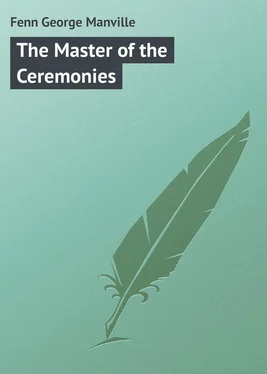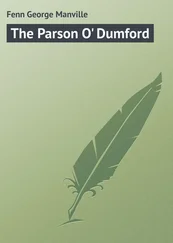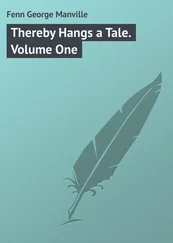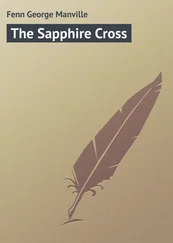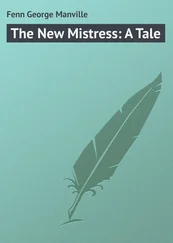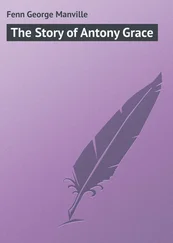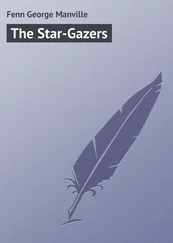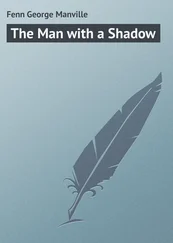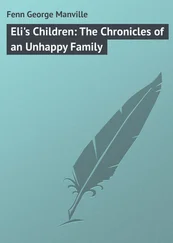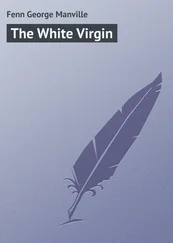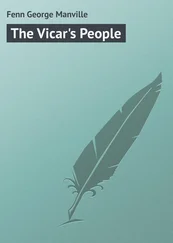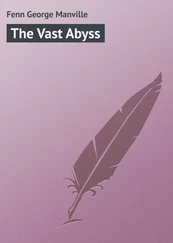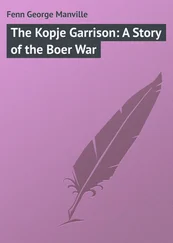George Fenn - The Master of the Ceremonies
Здесь есть возможность читать онлайн «George Fenn - The Master of the Ceremonies» — ознакомительный отрывок электронной книги совершенно бесплатно, а после прочтения отрывка купить полную версию. В некоторых случаях можно слушать аудио, скачать через торрент в формате fb2 и присутствует краткое содержание. Жанр: foreign_prose, на английском языке. Описание произведения, (предисловие) а так же отзывы посетителей доступны на портале библиотеки ЛибКат.
- Название:The Master of the Ceremonies
- Автор:
- Жанр:
- Год:неизвестен
- ISBN:нет данных
- Рейтинг книги:4 / 5. Голосов: 1
-
Избранное:Добавить в избранное
- Отзывы:
-
Ваша оценка:
- 80
- 1
- 2
- 3
- 4
- 5
The Master of the Ceremonies: краткое содержание, описание и аннотация
Предлагаем к чтению аннотацию, описание, краткое содержание или предисловие (зависит от того, что написал сам автор книги «The Master of the Ceremonies»). Если вы не нашли необходимую информацию о книге — напишите в комментариях, мы постараемся отыскать её.
The Master of the Ceremonies — читать онлайн ознакомительный отрывок
Ниже представлен текст книги, разбитый по страницам. Система сохранения места последней прочитанной страницы, позволяет с удобством читать онлайн бесплатно книгу «The Master of the Ceremonies», без необходимости каждый раз заново искать на чём Вы остановились. Поставьте закладку, и сможете в любой момент перейти на страницу, на которой закончили чтение.
Интервал:
Закладка:
It was curious to watch the effect of the song upon the occupants of the different chairs. The Major sat back slightly flushed, gazing straight before him at the bright face he conjured up; Sir Matthew Bray leaned forward, and bent and swayed his great handsome Roman-looking head and broad shoulders in solemn satisfaction, and his nearest neighbour, Sir Harry Payne, the handsome, effeminate and dissipated young dragoon, tapped the table with his delicate fingers and showed his white teeth. The stout Adjutant bent his chin down over his scarlet waistcoat and stared fiercely at the ruby scintillations in the decanter before him. The gentleman on his left, an insignificant-looking little civilian with thin, fair hair, screwed up his eyes and drew up his lips in what might have been a smile or a sneer, and stared at the gentleman on the Major’s left, holding himself a little sidewise so as to peer between one of the silver branches and the épergne.
The young man at whom he stared was worth a second look, as he leaned forward with his elbows upon the table and his head on one side, his cheek leaning upon his clasped hands.
He was fair with closely curling hair, broad forehead, dark eyes, and what was very unusual in those days, his face was innocent of the touch of a razor, his nut-brown beard curling closely and giving him rather a peculiar appearance among the scented and closely-shaven dandies around.
As the song went on he kept his eyes fixed on Colonel Mellersh, but the words had no charm for him: he was thinking of the man who sang, and of the remarkable qualities of his voice, uttering a sigh of satisfaction and sinking back in his seat as the song ended and there was an abundance of applause.
“Come,” cried Major Rockley, starting up again; “I have done so well this time, gentlemen, that I shall call upon my friend here, Mr Linnell, to give us the next song.”
“Indeed, I would with pleasure,” said the young man, colouring slightly; “but Colonel Mellersh there will tell you I never sing.”
“No; Linnell never sings, but he’s a regular Orpheus with his lute or pipe – I mean the fiddle and the flute.”
“Then perhaps he will charm us, and fancy he has come into the infernal regions for the nonce; only, ’fore gad, gentlemen, I am not the Pluto who has carried off his Eurydice.”
“Really, this is so unexpected,” said the young man, “and I have no instrument.”
“Oh, some of your bandsmen have stringed instruments, Rockley.”
“Yes, yes, of course,” cried the Major. “What is it to be, Mr Linnell? We can give you anything. Why not get up a quintette, and let Matt Bray there take the drum, and charming Sir Harry Payne the cymbals?”
“Play something, Dick,” said Colonel Mellersh quietly.
“Yes, of course,” said the young man. “Will you help me?”
“Oh, if you like,” said the Colonel. “Rockley, ask your men to lend us a couple of instruments.”
“Really, my dear fellow, we haven’t a lute in the regiment.”
“I suppose not,” said the Colonel dryly. “A couple of violins will do. Here, my man, ask for a violin and viola.”
The military servant saluted and went out, and to fill up the time Major Rockley proposed a toast.
“With bumpers, gentlemen. A toast that every man will drink. Are you ready?”
There was a jingle of glasses, the gurgle of wine, and then a scattered volley of “Yes!”
“Her bright eyes!” said the Major, closing his own and kissing his hand.
“Her bright eyes!” cried everyone but the Adjutant, who growled out a malediction on somebody’s eyes.
Then the toast was drunk with three times three, there was the usual clattering of glasses as the gentlemen resumed their seats, and some of those who had paid most attention to the port began with tears in their eyes to expatiate on the charms of some special reigning beauty, receiving confidences of a like nature. Just then, the two instruments were brought and handed to the Colonel and Richard Linnell, a sneering titter going round the table, and a whisper about “fiddlers” making the latter flush angrily.
“Yes, gentlemen, fiddlers,” said Colonel Mellersh quietly; “and it requires no little skill to play so grand and old an instrument. I’ll take my note from you, Dick.”
Flushing more deeply with annoyance, Richard Linnell drew his bow across the A string, bringing forth a sweet pure note that thrilled through the room, and made one of the glasses ring.
“That’s right,” said the Colonel. “I wish your father were here. What’s it to be?”
“What you like,” said Linnell, whose eyes were wandering about the table, as if in search of the man who would dare to laugh and call him “fiddler” again.
“Something simple that we know.”
Linnell nodded.
“Ready, gentlemen,” said the Major, with a sneering look at Sir Harry Payne. “Silence, please, ye demons of the nether world. ‘Hark, the lute!’ No: that’s the wrong quotation. Now, Colonel – Mr Linnell, we are all attention.”
Richard Linnell felt as if he would have liked to box the Major’s ears with the back of the violin he held; but, mastering his annoyance, he stood up, raised it to his shoulder, and drew the bow across the strings, playing in the most perfect time, and with the greatest expression, the first bars of a sweet old duet, the soft mellow viola taking up the seconds; and then, as the players forgot all present in the sweet harmony they were producing, the notes came pouring forth in trills, or sustained delicious, long-drawn passages from two fine instruments, handled by a couple of masters of their art.
As they played on sneers were changed for rapturous admiration, and at last, as the final notes rang through the room in a tremendous vibrating chord that it seemed could never have been produced by those few tightly-drawn strings, there was a furious burst of applause, glasses were broken, decanters hammered the table, and four men who had sunk beneath, suffering from too many bottles, roused up for the moment to shout ere they sank asleep again, while the Major excitedly stretched out his hand first to one and then to the other of the performers.
“Gentlemen,” he cried at last, hammering the table to obtain order, “I am going to ask a favour of our talented guests. This has come upon me like a revelation. Such music is too good for men.”
“Hear! hear! hear! hear!” came in chorus.
“It is fit only for the ears of those we love.”
“Hear! – hear! – hear! – hear!”
“We have drunk their health, to-night; each the health of the woman of his heart.”
“Hear! – hear! – hear! – hear!”
“And now, as we have such music, I am going to beg our guests to come with us and serenade a lady whose name I will not mention.”
“Hear! – hear! – hurrah!”
“It is the lady I am proud to toast, and I ask the favour of you, Colonel Mellersh, of you, Mr Linnell, to come and play that air once through beneath her window.”
“Oh, nonsense, Rockley. My dear fellow, no,” cried the Colonel.
“My dear Mellersh,” said the Major with half-tipsy gravity. “My dear friend; and you, my dear friend Linnell, I pray you hear me. It may mean much more than you can tell – the happiness of my life. Come, my dear fellow, you’ll not refuse.”
“What do you say, Linnell?” cried the Colonel good-humouredly.
“Oh, it is so absurd,” said Linnell warmly.
“No, no, not absurd,” said the Major sternly. “I beg you’ll not refuse.”
“Humour him, Dick,” said the Colonel in a whisper.
“You are telling him not to play,” said the Major fiercely.
“My dear fellow, no: I was asking him to consent. Humour him, Dick,” said the Colonel. “It’s nearly two, and there’ll be no one about. If we refuse it may mean a quarrel.”
Читать дальшеИнтервал:
Закладка:
Похожие книги на «The Master of the Ceremonies»
Представляем Вашему вниманию похожие книги на «The Master of the Ceremonies» списком для выбора. Мы отобрали схожую по названию и смыслу литературу в надежде предоставить читателям больше вариантов отыскать новые, интересные, ещё непрочитанные произведения.
Обсуждение, отзывы о книге «The Master of the Ceremonies» и просто собственные мнения читателей. Оставьте ваши комментарии, напишите, что Вы думаете о произведении, его смысле или главных героях. Укажите что конкретно понравилось, а что нет, и почему Вы так считаете.
